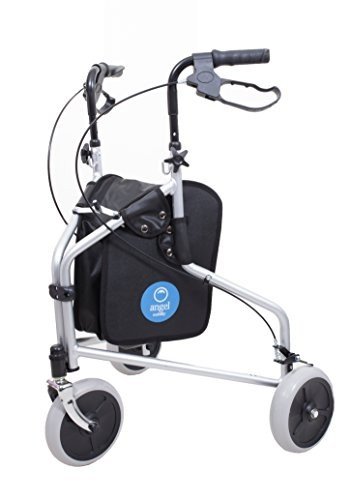A Comprehensive Guide to Buying a Mobility Scooter
Mobility scooters have ended up being a crucial tool for numerous people wanting to boost their independence and mobility. With a large range of models and features available, selecting the right mobility scooter can be intimidating. This article supplies an informative guide to help customers navigate their options, assess their requirements, and make a notified purchase.
Understanding Mobility Scooters
Mobility scooters are electric automobiles designed for individuals who experience mobility challenges. they said are especially advantageous for senior citizens, those with disabilities, or people recovering from injuries. Mobility scooters can differ widely in regards to style, features, and pricing.
Kinds Of Mobility Scooters
Before embarking on a purchase, it's vital to understand the different types of mobility scooters readily available:
Three-Wheel Scooters:
- Generally more maneuverable in tight spaces
- Lightweight and portable
- Suitable for indoor use
Four-Wheel Scooters:
- Offer greater stability and balance
- Appropriate for outdoor use over different terrains
- Normally have a longer battery life
Foldable/Portable Scooters:
- Designed to be easily carried and stored
- Can typically suit the trunk of a cars and truck
- Suitable for those who travel regularly
Heavy-Duty Scooters:
- Built to accommodate larger individuals
- Frequently come with more robust features for outside use
- Generally equipped with larger batteries for extended variety
Factors to Consider When Buying a Mobility Scooter
1. Weight Capacity
Choose a mobility scooter that can support the user's weight. The majority of scooters have a weight limit ranging from 250 to 500 pounds. It is essential to guarantee that the scooter can accommodate the user conveniently.
2. Range and Battery Life
The variety is how far the mobility scooter can travel on a single charge. Typical varieties vary between 10 to 30 miles. Think about the user's day-to-day activities and choose a scooter with an ideal range.
3. Scooter Dimensions
Consider the size of the scooter, including its weight and dimensions. A more compact scooter might be ideal for narrow hallways and tight areas, while bigger models offer extra stability and comfort.
4. Surface Capability
Evaluate where the scooter will mainly be utilized. If the user plans to travel mostly on pavement, a lightweight design might be adequate. However, if the user requires to pass through gravel or irregular surface areas, think about a four-wheel scooter constructed for off-road usage.
Leading Features to Look For
Comfort
- Adjustable Seats: Look for scooters with cushioned and height-adjustable seats to ensure comfort throughout travel.
- Armrests: These boost safety and assistance while browsing.
Security and Visibility
- Headlights and Taillights: Essential for nighttime use.
- Turn Signals and Reflectors: Improve presence and safety while on the roadway.
User-Friendly Controls
- Joystick or Drive Controls: These need to be intuitive and easy to control.
- Easy-to-Read Displays: A control panel that reveals battery life, speed, and distance can improve the user experience.
Additional Features
- Storage Compartments: These use added benefit for carrying individual items while on the go.
- Weather Protection: Consider designs with rain covers or windscreens if utilized in variable weather conditions.
Expense Considerations
When budgeting for a mobility scooter, rates can vary anywhere from ₤ 500 to over ₤ 5,000 depending on the model, functions, and brand. Additional expenses may consist of:
- Extended Warranty: Protects versus defects and can conserve money in the long run.
- Devices: Optional features, such as updated seats, lights, or storage options.
| Function | Cost Range |
|---|---|
| Basic Models | ₤ 500 - ₤ 1,500 |
| Mid-Range Models | ₤ 1,500 - ₤ 3,000 |
| High-End Models | ₤ 3,000 - ₤ 5,000 |
Financing Options
Many sellers provide funding strategies, and some regional federal government initiatives may provide grants or support for those in requirement. Investigate potential financial help with neighborhood resources or mobility service organizations.
FAQs about Buying a Mobility Scooter
What is the distinction in between a mobility scooter and a wheelchair?
Mobility scooters are motorized and permit users to navigate separately, while wheelchairs might need physical assistance or manual operation.
How do I maintain a mobility scooter?
Regular maintenance involves examining battery life, cleaning the scooter, and examining tires and brakes. Always describe the user manual for specific standards.
Can mobility scooters be utilized inside?
Yes, many models are developed for both indoor and outdoor use. Nevertheless, three-wheel scooters tend to be better fit for indoor navigation due to their tighter turning radius.
Are mobility scooters covered by insurance coverage?
Some insurance coverage plans cover a portion of the costs for mobility scooters if they are considered clinically needed. Contact your company for particular information.
How quick can a mobility scooter go?
Most mobility scooters have a maximum speed ranging from 4 to 8 mph. Nevertheless, the proper speed might differ depending on local guidelines.
Buying a mobility scooter can considerably improve one's independence and lifestyle. By understanding the types, functions, and expenses connected with mobility scooters, potential purchasers can make knowledgeable decisions that match their requirements and choices. Customization and thorough research study are essential to ensuring fulfillment with this crucial financial investment.

